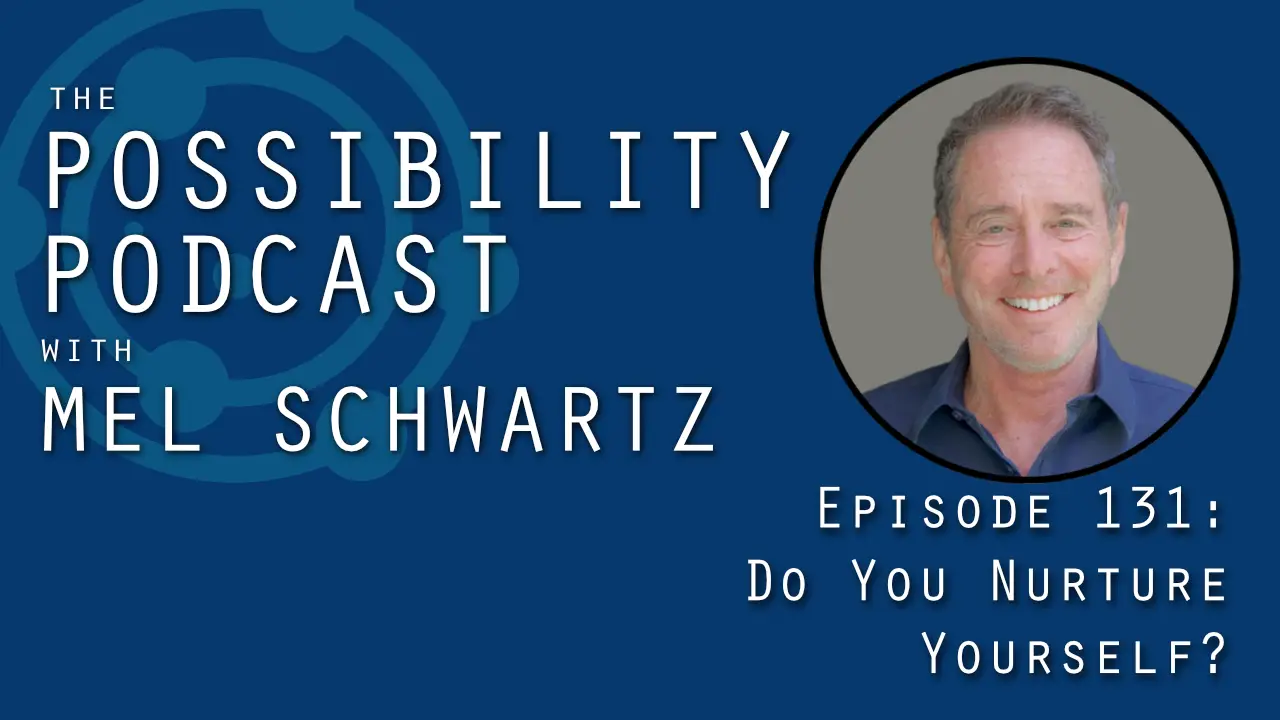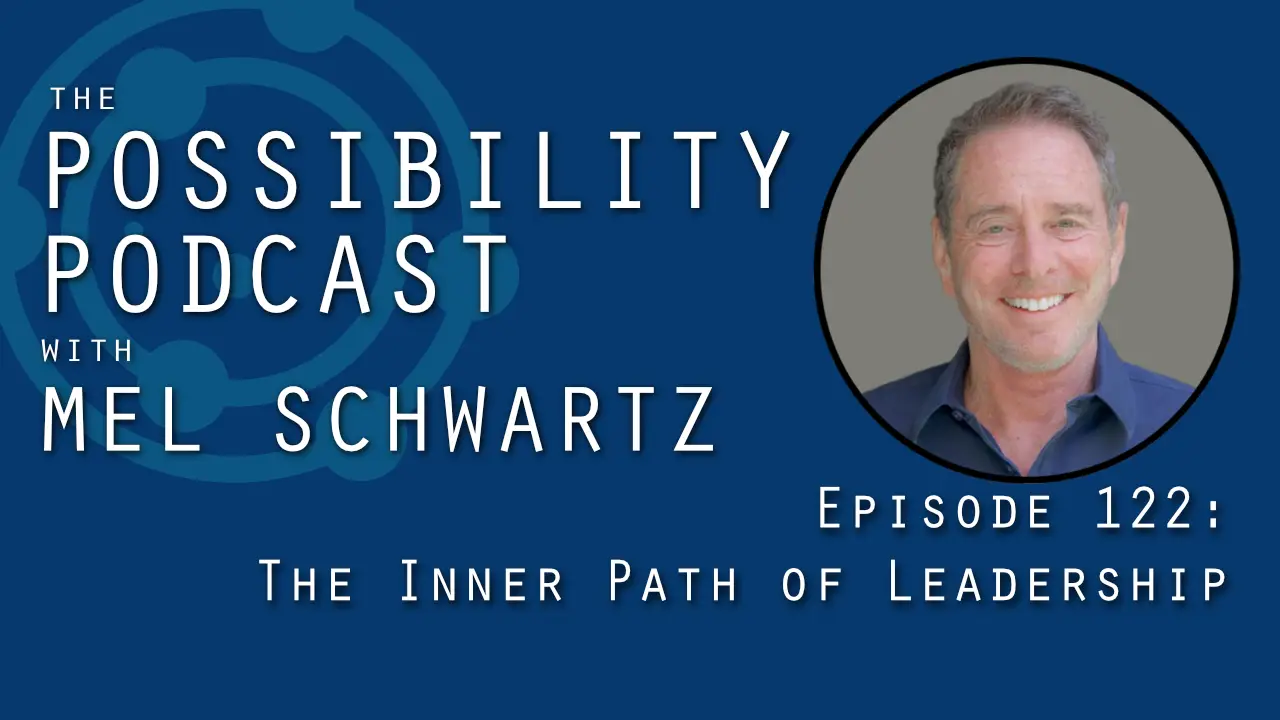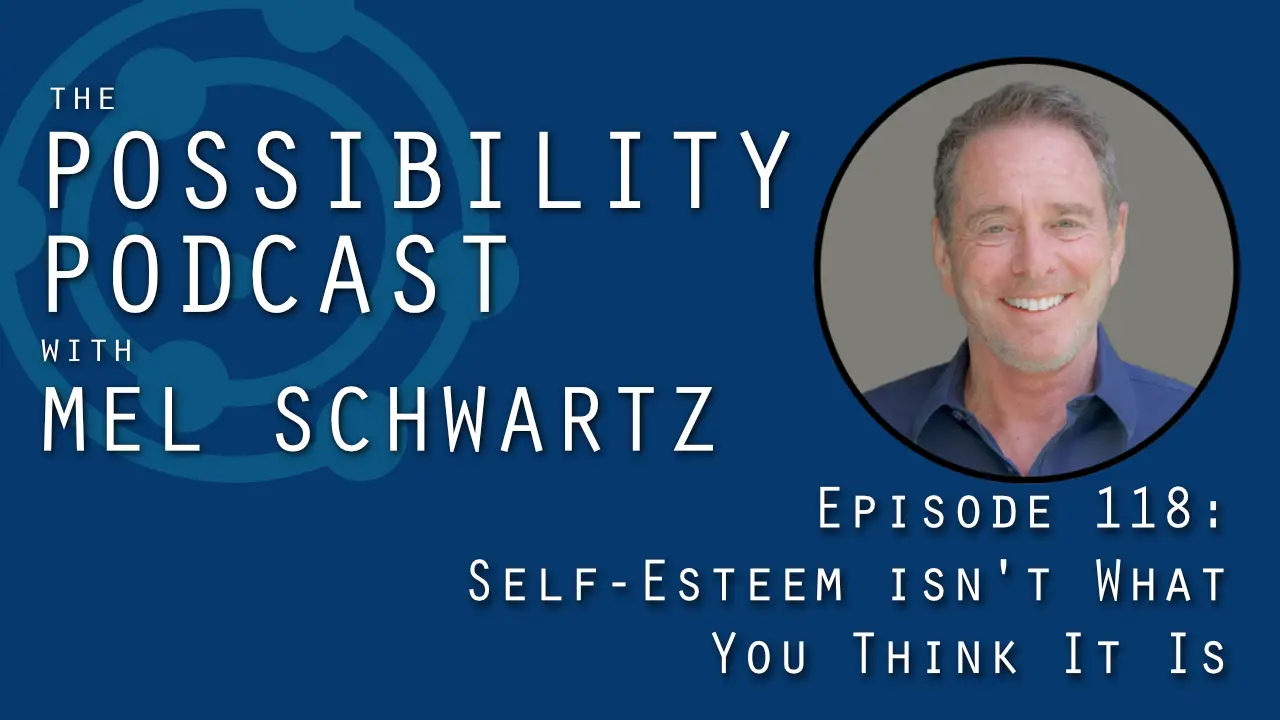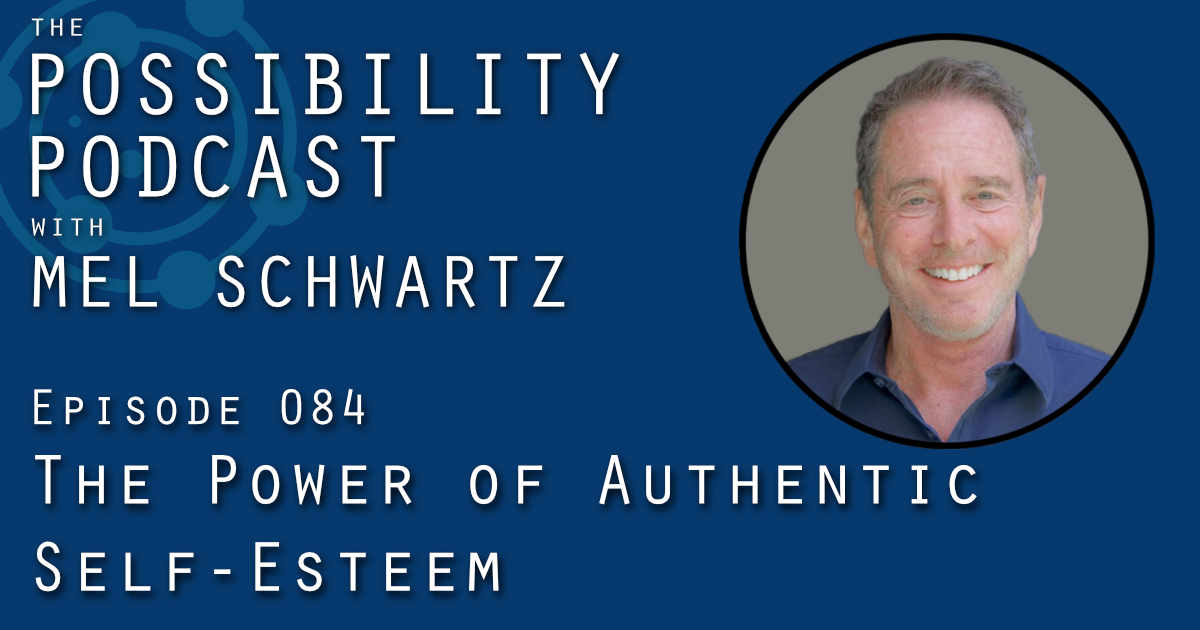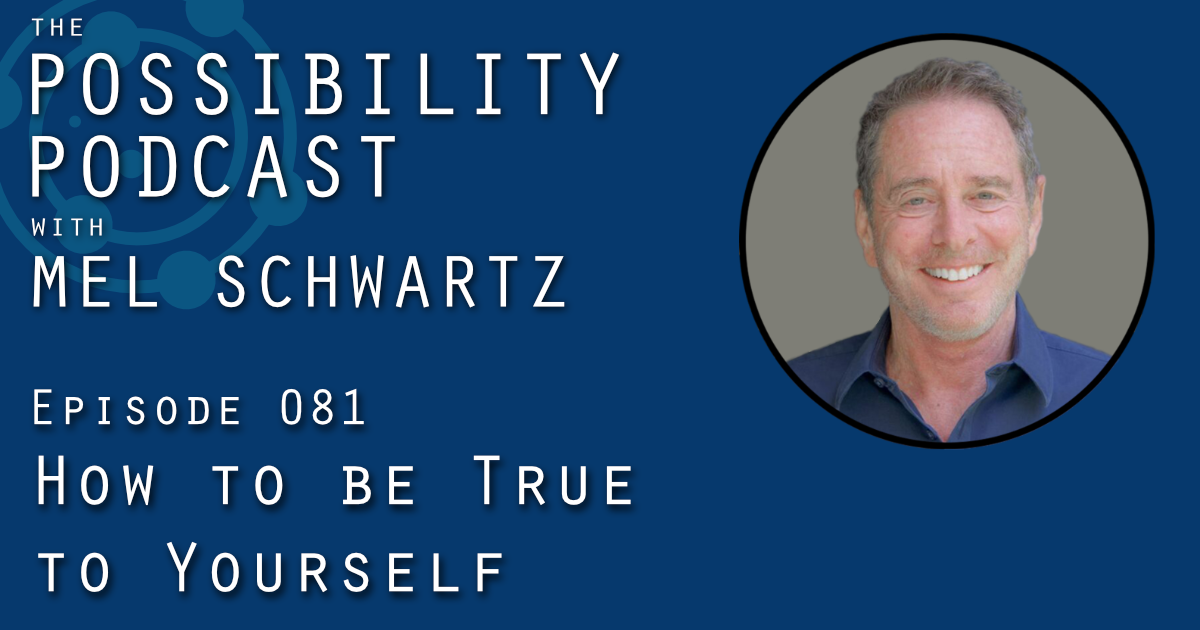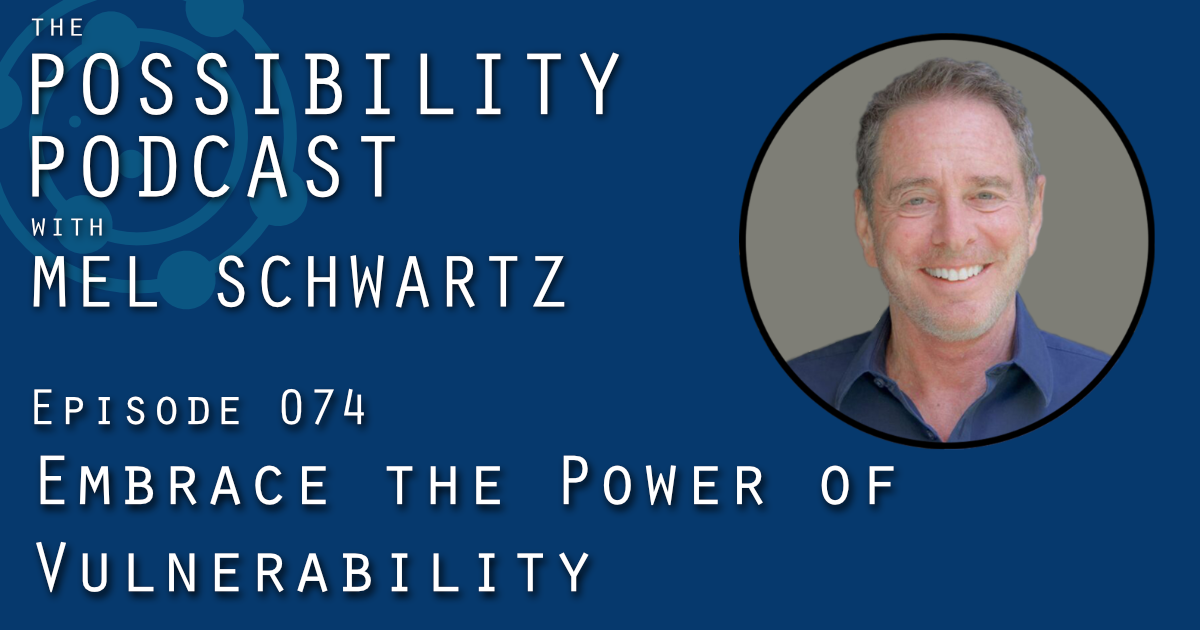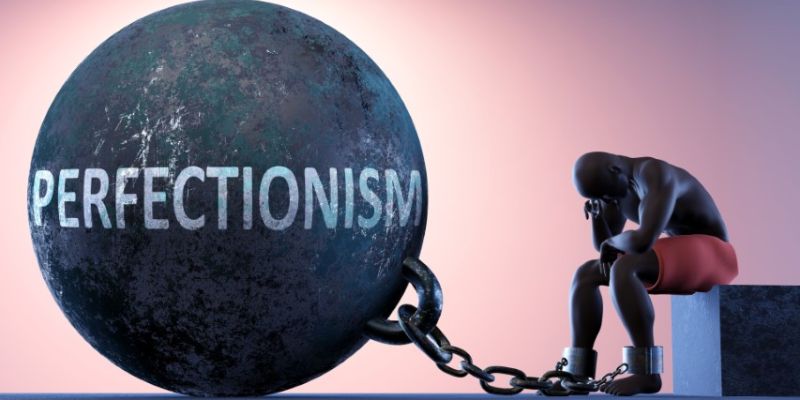In The Possibility Podcast episode 131, we look at why it’s important to have a nurturing, caring, positive relationship with ourselves, and how our view of ourselves affects how we see others, and how they see us.
Tag: self-esteem
#122 The Inner Path of Leadership
In another cross-posting of the blog and podcast, Mel reveals the three pillars of singular, excellent leadership. The podcast includes a conversation with therapist Catheryn Leff on the origins of her own leadership style.
#118 Self-Esteem Isn’t What You Think It Is
The Possibility Podcast with Mel Schwartz 118 reveals that self-esteem is not really what we think. Mel explains what it is, what causes it, and how to shift our thinking to experience true self-worth.
#086 How to Live a Fearless Life
Episode 086 of The Possibility Podcast with Mel Schwartz is all about the overwhelming influence of fear in our culture, and how we can live our lives in a fear-less way.
#084: The Power of Authentic Self Esteem (Encore Presentation)
In this encore presentation of an episode originally released in 2019, Mel is joined by a therapy guest to discuss self-esteem, self-worth, and the root of happiness.
#081: How to Be True to Yourself
The Possibility Podcast with Mel Schwartz episode 081 explores what we mean when we talk about being true to yourself, what keeps us from being true to ourselves, and how to accomplish true authentic selfhood.
#074: Embrace the Power of Vulnerability
Episode 074 of The Possibility Podcast with Mel Schwartz examines the power of vulnerability to achieve authentic self-worth and self-esteem.
#051: Be Significant
Why living a life of deep meaning and purpose helps us feel significant and valuable to ourselves and in our relationships with others.
The Problem with Perfection
In recent years, I’ve treated increasing numbers of individuals who are driven to distraction through their pursuit of perfection. The desire to be perfect traps… Continue reading The Problem with Perfection
#026: We All Just Want to be Loved
We all just want to be loved…but we struggle as we get in our own way. In this episode, Mel navigates the nuances and complexities… Continue reading #026: We All Just Want to be Loved

